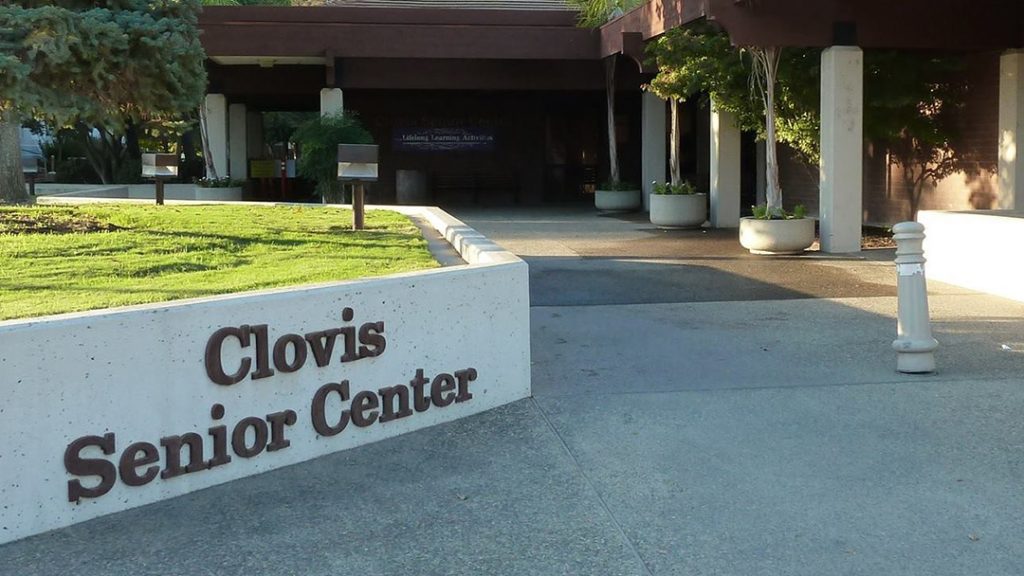
As temperatures rise, so does the risk for heat related dangers for seniors and people with disabilities.
When temperatures reach as high as 110 degrees, some may decide to go out of town or stay inside to avoid the heat during the day. However, many individuals are at high risk if a power outage occurs due to a strain on the energy grid.
While being in the heat can be detrimental for anyone, it becomes a greater risk for seniors and individuals with disabilities who need access to relief from the heat quicker.
If you are someone who helps provide care for an older adult or someone with a disability during this heat wave, there is a program offered by the Clovis Senior Center that may help keep your loved ones safe.
The Clovis Senior Center’s “Reassurance” Program is a program centered around providing check up calls on loved ones that are signed up by friends or family. This program gives participants the option to have staff from the senior center call on a schedule determined by the participants of the program.
Schedules include a daily basis phone call schedule and an alternative schedule to accommodate the family member’s routine’s.
Moniqua Randolph, Administrative Assistant for the Clovis Senior Center said for someone to have a family member be checked up on through this program the only requirements that need to be met are that they 1) be 50 years or older and 2) that they live in Fresno County.
“All they need to do is call the center and let them know that ‘I have mom, dad, uncle, and if we can start checking up on them on Monday, Wednesday, Friday, and here’s their phone number.’ and we will get them on our list,” Randolph said.
According to the Center for Disease Control and Prevention (CDC) regular contact to ask if the person in question is cool enough is an important part of ensuring their safety during times of extreme heat.
“Listen for patterns of shared concerns. Consider having a remote body or home temperature sensor or monitor installed,” according to the CDC.
Other preventative measures to ensure the safety of loved ones during excessive heat include implementing technology for those who may not be able to check on their loved ones in-person.
The ability to control the thermostat remotely from your phone or other device will help add a level of security and comfort for both parties during times of excessive heat.
Other steps involve checking on their medications and checking on them in-person and if you don’t live close, to ask someone who lives nearby to check up on them regularly to ensure they are staying cool and hydrated during the heat.
According to the Clovis Senior Center article on Senior Safety, seniors and people with disabilities or those in poor health or sensitive to extreme temperatures should contact the local electrical utility company in advance about any specific news regarding breathing machines or other life sustaining devices that depend on electricity. If lack of electricity would create an immediate threat to life or safety, local public safety agencies should also be given advance notification.
With temperatures expected to remain between 104-113 degrees fahrenheit from Sept. 2, through Sept. 9, it’s important to remember that people aged 65 or older “are more prone to heat related health concerns,” according to the CDC.
“Older adults can’t adjust to sudden temperature changes as fast as younger people. This may happen because of certain medicines they take or chronic illnesses that affect their ability to regulate body temperature,” according to the CDC.
If your body begins to feel like it is overheated here are some signs to look out for:
- Sudden dizziness
- Heat cramps
- Swelling in your legs
- Heat exhaustion – when your body can no longer stay cool. This often appears as feeling thirsty, dizzy, weak, uncoordinated, or nauseated. You may sweat a lot and have cold and clammy skin or have a rapid pulse.
- Heat stroke, which is a medical emergency. Signs can include fainting, behavior changes, high body temperature (over 104 degrees fahrenheit), dry skin, a strong and rapid pulse, a slow and weak pulse, and no longer sweating even though it’s hot.
The City of Clovis offers a cooling center via the Sierra Vista Mall, which is open to residents from 11 a.m. to 8 p.m. from Monday through Saturday and from 12 p.m. to 6 p.m. on Sunday.
The mall is located at 1050 Shaw Avenue in Clovis and Clovis Transit provides raised at no cost and the can be accessed via Stageline’s Route 50 or through the use of Clovis’ Round Up service. More information on transit stops and schedules can be found on the City of Clovis’ website.








